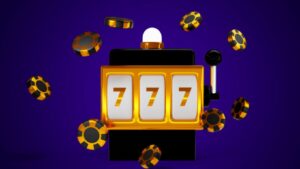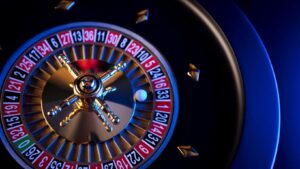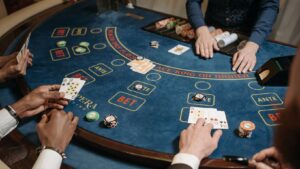Table of Contents
ToggleThe e-sports industry has transformed from basement tournaments to sold-out arenas and million-dollar prize pools. Professional gamers now command salaries rivaling traditional athletes, with top players earning six or seven figures annually through tournament winnings, sponsorships, and streaming revenue. The dream of making a living playing video games has become a legitimate career path, but the journey from casual player to professional competitor requires dedication, strategy, and understanding of the competitive landscape.
Breaking into professional e-sports isn’t simply about being good at games — it demands the discipline of an athlete, the strategic mind of a chess player, and the performance consistency of a professional musician. This comprehensive guide outlines the roadmap to professional e-sports, from initial skill development to landing your first team contract.
Choosing Your Game and Mastering the Fundamentals
Your first critical decision involves selecting which game to pursue professionally. Popular e-sports titles like League of Legends, Counter-Strike 2, Dota 2, Valorant, and Rocket League each offer distinct competitive scenes with varying skill requirements and career opportunities. Research the competitive landscape, prize pool distributions, and player longevity in each game before committing.
Once you’ve chosen your game, focus intensively on mastering fundamentals rather than flashy techniques. Professional players spend thousands of hours perfecting basics — precise aim in shooters, last-hitting in MOBAs, positioning awareness, resource management, and game sense. Top-tier players can execute fundamental mechanics flawlessly under pressure, which separates them from skilled casual players.
Essential skills to develop:
- Mechanical proficiency: Lightning-fast reflexes and muscle memory.
- Game knowledge: Understanding meta strategies, patch changes, and counter-plays.
- Communication: Clear callouts and team coordination.
- Mental resilience: Maintaining focus during high-pressure situations.
- Analytical thinking: Reviewing gameplay to identify improvement areas.

Dedicate 6-10 hours daily to deliberate practice, focusing on specific skill deficits rather than mindlessly grinding matches. Professional players treat practice like athletes treat training — structured, purposeful, and data-driven.
Building Your Competitive Profile and Climbing Rankings
Establishing yourself in the competitive scene requires visibility and proven results. Start by dominating ranked ladders in your chosen game. Reaching the top 0.1% of players signals you possess the mechanical skills and game understanding necessary for professional play. Consistency matters more than occasional brilliant performances — maintain high rankings across multiple seasons.
Join amateur tournaments and online leagues to gain competitive experience beyond ranked play. Platforms like FACEIT, ESEA, and game-specific tournament organizers host regular competitions where you can test skills against other aspiring professionals. Tournament performance, even at lower levels, demonstrates your ability to perform under pressure and attracts attention from scouts and team managers.
Create content showcasing your gameplay through streaming on Twitch or uploading highlights to YouTube. Building an audience serves multiple purposes: it demonstrates marketability to potential sponsors, provides additional income streams, and increases your visibility within the community. Teams value players who bring existing fanbases, as this enhances the organization’s brand reach.
Structured Training and Performance Optimization
Professional e-sports training mirrors traditional sports in its intensity and structure. Elite players follow rigorous schedules combining individual practice, team scrimmages, video review sessions, and physical fitness routines. Yes, physical fitness — reaction time, focus, and endurance all improve with cardiovascular health and strength training.
Your daily training regimen should include aim training or mechanical drills for 1-2 hours, ranked games or scrimmages for 4-6 hours, and video review for 1-2 hours. Much like how players analyze odds and strategies at hitnspin before committing to decisions, professional gamers meticulously study replays to understand opponent patterns, identify personal mistakes, and refine strategic approaches.
Professional training schedule example:
- Morning: Physical exercise and mental warm-up (1-2 hours);
- Mid-morning: Mechanical drills and aim training (1-2 hours);
- Afternoon: Ranked play or team scrimmages (4-5 hours);
- Evening: Video review and strategy discussion (1-2 hours);
- Night: Light practice or content creation (1-2 hours).
Mental health maintenance is equally crucial. Burnout plagues competitive gaming, with many promising players flaming out due to exhaustion. Incorporate rest days, maintain social connections outside gaming, and consider working with sports psychologists specializing in e-sports performance.
Breaking Into Teams and Maintaining Your Career
Landing your first professional contract typically happens through several pathways: open tryouts, scouting from ranked ladders, academy team promotions, or networking within the competitive community. Maintain an updated portfolio including your peak rankings, tournament results, highlight reels, and contact information. Professional presentation matters — teams invest significant resources in players and prefer those demonstrating professionalism.
Career longevity in e-sports averages 3-5 years at peak performance, though some players compete successfully into their late twenties or early thirties. Planning for post-competitive career transitions is essential. Many retired players transition into coaching, analysis, content creation, or business roles within e-sports organizations. Building transferable skills throughout your playing career ensures financial stability beyond your competitive prime.
The path to professional e-sports demands sacrifice, discipline, and realistic assessment of your abilities. Not everyone possessing skill will succeed professionally — timing, opportunity, and persistence play crucial roles. However, for those willing to commit fully, professional gaming offers an exciting career combining passion and profession in ways previous generations could never imagine.




